Hosted by Claire Musters
This month I’m reading…
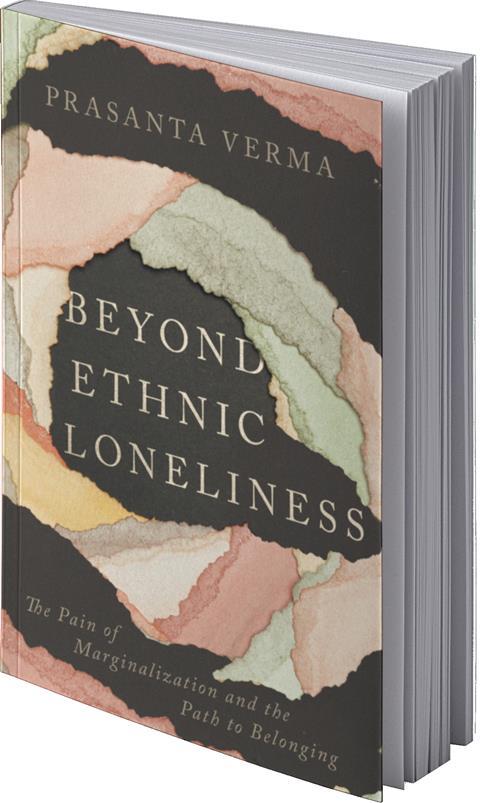
Beyond Ethnic Loneliness: The pain of marginalization and the path to belonging
By Prasanta Verma (IVP, 978-1514007419)
I was recently challenged by a group made up of black, Asian and other ethnic background individuals that it is my responsibility to educate myself about the experiences of those unlike me; particularly those who have experienced racism. It was an unsettling experience, but one that made me think deeply. The choices I make with my reading material often reflect who I am, but books by non-white authors give me a huge opportunity to listen and learn, which is why I was keen (and slightly daunted) to read Beyond Ethnic Loneliness. The author explains that this book has been written for all ethnic minorities, but also for those who care about racial and social justice. Whether you pick up this book as part of a healing or learning journey, there is much that will inform, resonate, provoke and equip.
It begins with an example of racism from the author’s own childhood. Prasanta describes how people didn’t know how to view her, and that she, too, struggled to figure out her own identity.
The book is broken down into two main parts: ‘So, What are you?’ (understanding ethnic loneliness) and ‘So, what can be done?’ (The path to belonging), and each chapter ends with a beautiful poem then questions for reflection and discussion.
There is much that made me squirm while reading, as I began to understand a little more of the author’s experiences and how different they have been to my own. While giving voice to the pain, Prasanta offers up strategies for coping but also shows the unique benefits of being an ethnic minority and the gifts that can be shared in community.
This is a deeply personal book, but also one that challenges the norms of society. Why did you feel spurred on to write it?
First, it was my own journey of reclaiming, accepting – and celebrating – my ethnic identity. I knew others were on this journey as well and I wanted to offer language to help explain the cultural dynamics that can occur when living as someone in a minority group, how it affects our psyche, and our sense of identity and belonging.
In addition, because loneliness is a major public health issue, and since I have some training and background in public health, I was concerned about the level of loneliness and social disconnection we are experiencing in society. But when I thought about loneliness, I wanted to consider the multiplying effects that disconnection has on communities of people of colour.
Early on in the book you describe being angry at God as a teenager and young adult, for your skin colour and the fact that you seemed stuck in the middle of two cultures. Could you describe what that was like, and how you were able to move on from that place?
When I was growing up, as a child and as a teenager, I wanted simply to fit in and to look like everyone else. I didn’t want to be different. I felt that people who looked at me saw only my external appearance, and it was lonely because other than my family members, there was no one else in my small town in the southern United States that looked like me. I remember asking God what was the reason for me looking Indian if I were to grow up in this small southern town with white people? If God wanted me to be Indian, why weren’t we in India? If God wanted me to be ‘American’, why wasn’t I white? I had internalised the idea that to be American was to be white.
It took my years to unpack and understand my own sense of internalised racism – the idea that who I was was inferior, and that being white was superior. In fact, for years, I thought that systemic racism was exaggerated, despite my and my own family’s experiences with it. It took me years to acknowledge what I had previously downplayed or outright denied.
Could you describe exactly what ethnic loneliness is?
In the book, I say that I think loneliness is the opposite of belonging. If we don’t feel we belong to another person or a place, we feel disconnected and lonely. And we can be lonely for so many reasons, such as the loss or death of a loved one; moving to a new city and knowing no one; being a young mom with young children at home; being left out of social situations; and in many other situations.
Ethnic loneliness is the loneliness of being excluded as the result of our racial or ethnic identity. And there are factors that characterise this kind of loneliness that are unique; the fact that they include things we cannot change, such as our skin colour and our ethnic identities. When we walk into spaces or new places, we walk in with a sense of not knowing if we will be accepted – if we will be able to say we ‘belong’ to that place. This is another degree of loneliness we experience on top of the other kinds of loneliness present in our lives.
When raising the subject of unconscious bias, you say that all of us, whatever the colour of our skin, have a bias. Could you explain this, and why it is helpful for us to understand our own biases?
I believe that every single one of us is not exempt from having unconscious bias. I certainly am not – and needed help in identifying mine. And the thing about unconscious bias is that by very definition, it’s ‘unconscious’. We aren’t aware of what our unconscious biases are. We need some external help, a mirror, if you will, to help us to ‘see’ what our biases are. It’s like that blind spot in our car’s side view mirror – it helps us to identify what’s in our blind spot. It’s important to name and recognise these biases because it helps us to see beyond stereotypes, and it helps us in our interactions with others so that we can be aware if we are being unfair without realising it. It helps us in identifying our assumptions.
You bring out the idea that loneliness and feeling exiled has a biblical precedent – why was this an important thread for you to include?
We are, essentially, people of exile, and living in an in-between place and in an in-between time. So, we experience this living in exile on different levels, including spiritually. I ponder this because I wonder if this isn’t part of our way home – that living in exile is really the major part of our existence and it’s an essential path to our journey home and to our journey to belonging. Times in exile and wilderness, while excruciating, disorienting and challenging, are also places we find God, we find ourselves and we find each other. We find answers, we find truth, we learn about ourselves and God. Maybe this is the real path – or an essential component of it– instead of something that is an anomaly.
You share that your counsellor gave you an interpretation of the biblical story of Mary and Martha that was unexpected and challenged you – could you explain that here?
I’d long heard the interpretation of this story as the difference between Type A and Type B personalities. Martha was Type A and worried about this and that, scurrying about fulfilling tasks. Mary was the Type B personality, who sat calmly, not worrying about the tasks that needed to be done. And of course, someone has to do the work, right?
But what I was being asked to consider was a different question. Might Martha have been hiding behind her work? Was she choosing to hide, because just maybe sitting at Jesus’ feet would convict her in some way and she was avoiding that? So, the question I was being asked was if I was also choosing to be invisible in some way by not showing up as myself. This does not mean, of course, I can do so safely and always – I can’t. And neither is this about blaming myself. But the question was about authenticity. How much of myself was I hiding – and from whom?
What are your hopes for this book?
My hope is that we normalise conversations surrounding loneliness, and ethnic loneliness in particular. In addition, I want those who experience ethnic loneliness to have language for their experiences and name them, and offer hope and some pathways to belonging. I want these readers to feel seen and know that they are not alone.
Furthermore, I hope this book moves the needle toward bringing awareness of these issues to the forefront. I hope white majority readers who read the book will have greater understanding, awareness and deeper empathy for those who are marginalised and who feel othered.
Ultimately, I hope it helps moves us closer to one another and that finding a sense of belonging is possible.
Prasanta Verma on: The books that have changed my life
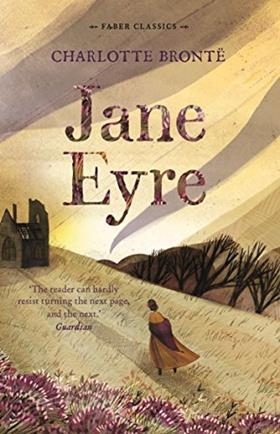
Jane Eyre
by Charlotte Brontë
I first read this as part of a high school English class and it’s a story that has stayed with me since. I remember we had a vocabulary list along with the reading – and I was impressed that this writer had such a substantial vocabulary. Jane endured a horrific childhood, and yet emerges with a strong sense of autonomy and personhood. It’s a story of belonging, of friendship, love, social class, power – and of overcoming. Jane walks with integrity. She speaks up for herself and makes decisions that require substantial courage. I find strength in Jane’s character, and her resilience, and I emerge a different person and writer after reading this story. I re-read this every few years or so.
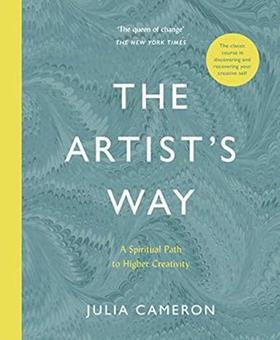
The Artist’s Way
by Julia Cameron
This is the book that helped me name myself as a writer. I had been writing up until the time I first read this – but I hadn’t yet named myself as such. And when I call myself a writer, it does not necessarily mean this is the primary means in which I make my living (most writers can’t rely on their writing to make a living), but that it is one of my callings, or giftings, something I am compelled to do, no matter what else I may do. It’s not possible to digest this book in one reading; it requires reading every so often and considering what I need at that particular stage in my creative pursuits.
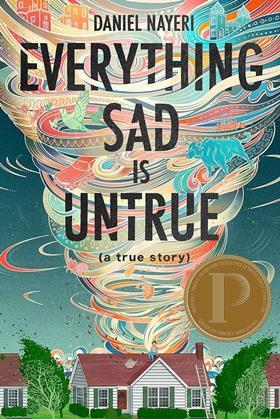
Everything Sad is Untrue
by Daniel Nayeri
This book came out in 2020 and at first I was confused – was it a children’s book? Was it memoir? I hesitated to read it. It is actually categorised as a children’s book, but it is unlike any other book I’ve ever read – and it certainly isn’t just for children. This is fiction and not fiction, it’s memoir and story. It’s described as an ‘autobiographical novel’. It’s a beautiful story of belonging, of being homeless and longing for home, and it made me simultaneously laugh and cry. It’s a genre-bending, storytelling masterpiece. Written by an Iranian refugee who grew up in Oklahoma, this book spurs me on to be a writer and storyteller. It’s the kind of storytelling that leaves us mesmerised and longing for more.
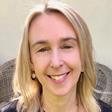












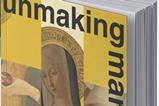
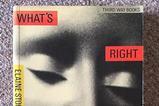

















No comments yet